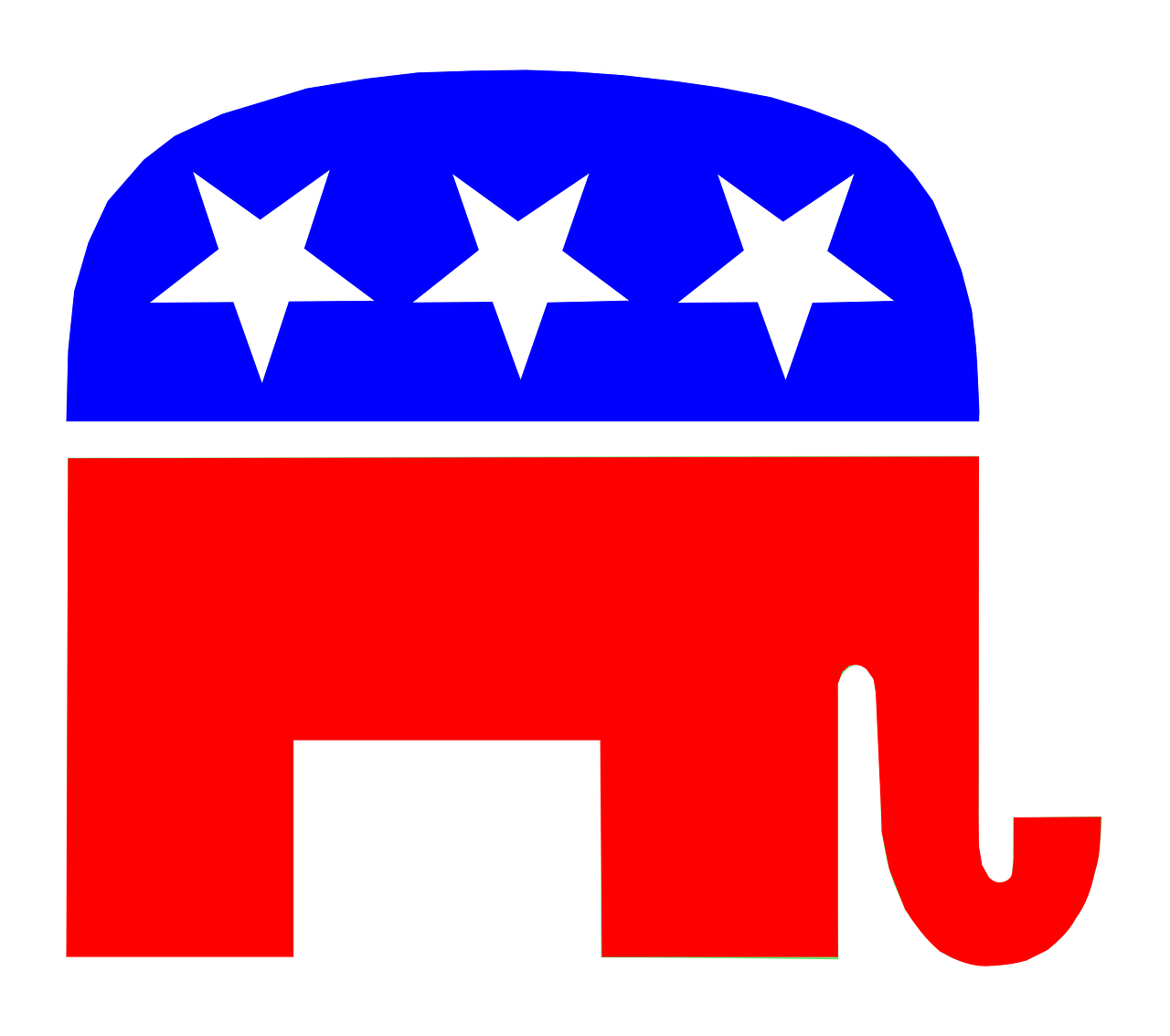
Elephant symbol for Republic Party – photo credit
About twenty minutes into a political debate with my father we were on track to finish exactly where we started… again. Exasperated, he said
“You know, maybe you’re not as open-minded as you think you are.”
As the resident liberal of the family this cut me deep.
“ME?”
I practically shouted. I wasn’t about to take that from someone whose media diet consisted of Fox News and Facebook.
Since going away to college, I had strayed from my conservative roots. My dad noticed.
“Do those professors ever have you read any conservatives?”
I rolled my eyes.
It is a poorly-kept secret that the town in which I attended school—Ithaca, NY—is a haven for liberals and progressives. Vegan restaurants, Buddhist shops, and bookstores line the streets of “The Commons.” Like Portland and Austin, Ithaca takes a certain amount of pride in being “weird.”
That said, I have to admit that I wasn’t really exposed to much of conservatism during college. Though I undoubtedly encountered many wise teachers during my time there, several of whom expanded my worldview, rare were the times when one of them put forth the most compelling case possible for conservatism. When they did talk about conservative viewpoints, you were always waiting for the other shoe to drop. As if the next sentence would be “And now here’s the correct way to think about this.” No wonder many liberals can’t seem to understand why “they” vote the way they do.
This isn’t unique to Ithaca or any one college, really. It is part of a decades-long trend in higher education. While much of the country has remained somewhere in the murky political middle since the 1990’s, professors (and students) have slowly shifted more and more Left. I (of course) didn’t know this when I was in school. The professors themselves likely didn’t know either. Some still don’t. It’s hard to recognize change when it happens slowly. The research on this trend validates what people like my dad and many others have suspected to be true for some time: college isn’t what it used to be.
It’s become common to hear conservative pundits complain about safe spaces, cancel culture, and the deteriorating intellectual climate in academia. Taking his cue from these talking heads, my father added,
“These professors brainwashed you! They corrupted your young mind.”
I resented the implication that I couldn’t think for myself. But here’s the thing—he wasn’t entirely wrong. I was often presented caricatures of the Right from my professors or fellow students. This made it easier for me to dismiss conservatism altogether. Maybe that was the point.
My goal isn’t to turn you into a conservative—I wouldn’t even call myself one. But when you remove the caricatures and click-bait, I’ve found much more common sense from some conservative voices than I’d anticipated. People like David Brooks, Thomas Sowell, Linda Chavez, and Mona Charen—whom I encountered mostly by accident, years after graduating.
I call them gateway conservatives because of their ability to gently lead those Left of center, like myself, into the territory of traditional conservatism and find value in their perspective. Grappling with these intellectuals made for more constructive conversations with my dad, and yes, even opened my mind. At first, it was jarring to find myself nodding along with a conservative. Ultimately, they sharpened my thinking because they saw the world so differently than I did. And they were much more difficult to dismiss than the extremists I had come to associate with the entire party.
Had I been exposed to the best that conservatism had to offer, even if I didn’t agree, I would have been far more prepared for engaging with the “real world.” I don’t believe there was any malice on the part of my professors, but a crime of omission is still a crime. The end result was the same: my nearly $200,000 liberal arts degree, my entire college experience, was far less valuable than it could have otherwise been.
One could argue that my limited exposure to conservative thinking was a form of censorship. While this is obviously a problem, the bigger issue is the self-censorship that has become pervasive on college campuses today. A recent study shows that 67% of students who identify as republican and 49.7% of those identifying as Democrats “…have wanted to express their views but have decided not to,” for fear that others may disagree with them or that their words might be perceived as offensive. That any student, Left or Right, would fear “putting their foot in their mouth” is a travesty. Sometimes there is no better learning opportunity. I know from experience.
When I was in college, I used to rant about the lack of diversity in congress. By race, gender, and age, the United States congress is one of the more homogenous governing bodies in the world. Perhaps more important, is the lack of diversity by occupation. Virtually all of our representatives are trained in law. Why does this matter? Because people with similar training tend to think alike. Lawyers can’t see issues from the perspective of a scientist, teacher, plumber, nurse, or cop—and the policy decisions they make reflect this. The problem in Washington is the same as the one now plaguing academia: we’re so focused on diversity of physical traits, that we forget about diversity of thought.
Thankfully, there are groups that are working to change this. I belong to a group of committed academics and thought leaders trying to restore balance to our colleges and universities. Heterodox Academy (HxA) seeks to bring conservative intellectuals back to the table, not because they advocate for their beliefs, (the group is non-partisan), but because they know the power that comes from viewpoint diversity—political and otherwise. Other organizations like The Foundation for Individual Rights and Expression (FIRE) and Aspen Institute, aim to restore the principles of free speech on campus. Not so long ago, these principles are what helped American universities become the envy of the world. And while we have strayed from these traditions of fearless, open inquiry it’s not too late to right the ship.
You don’t have to be in academia or even have attended college to help correct course. In fact, those on the “outside” may be the ones best equipped to appreciate the full extent of the problem. When we all feel like we’re walking on eggshells, we’re weaker individually and collectively. The same could be said when we’re surrounded only by those who think like us, never being challenged, never expanding our minds. By supporting free speech and viewpoint diversity you’ll help make universities—and all of the incredible people, products, and ideas they produce (dare I say it) great again.

.png)